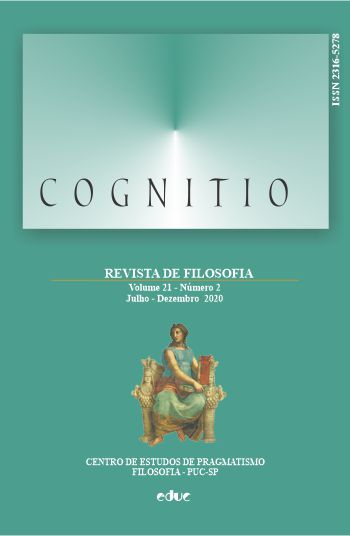Ethical objectivity and the death of ontology in Putnam
DOI:
https://doi.org/10.23925/2316-5278.2020v21i2p246-259Keywords:
Ethics, Objectivity, Ontology, Conceptual relativismAbstract
We will trace Putnam’s rebuttal of the necessity of ontological foundations for ethical theories, analyzing his trajectory through authors such as Quine, Moore, and Wittgenstein. From Quine’s epistemological naturalism, we will establish his coherentist pragmatism foundation. From there, we shall investigate his departure from ontology according to his Wittgensteinian perspective of Moorean and Platonic conceptualism. Characterizing Heidegger as the primary target of his criticism of a necessity for ontology, he dissociates himself even from Quine by embracing a conceptual relativity inspired in mereology and language-games to establish the objectivity of ethics without a requirement for objects. Lastly, from this definition, we will investigate Putnam’s conception of ethics, which is strongly inspired by Dewey and Aristotle in dialogue with Levinas and Kant toward a “human cognitive flourishing.” His definition is brief and superficial, however, he claims such characteristics are necessary toward malleability in ethics, contrasting with a rigid definition which can be easily broken given the ample disagreement in moral philosophy. This flexibility would not fall into absolute relativism for it praises reasonability and progress, likewise avoiding damaging “anti-flourishing” doctrines.Downloads
Published
2021-01-28
How to Cite
Igansi, L. N. (2021). Ethical objectivity and the death of ontology in Putnam. Cognitio: Revista De Filosofia, 21(2), 246–259. https://doi.org/10.23925/2316-5278.2020v21i2p246-259
Issue
Section
Cognitio Papers









